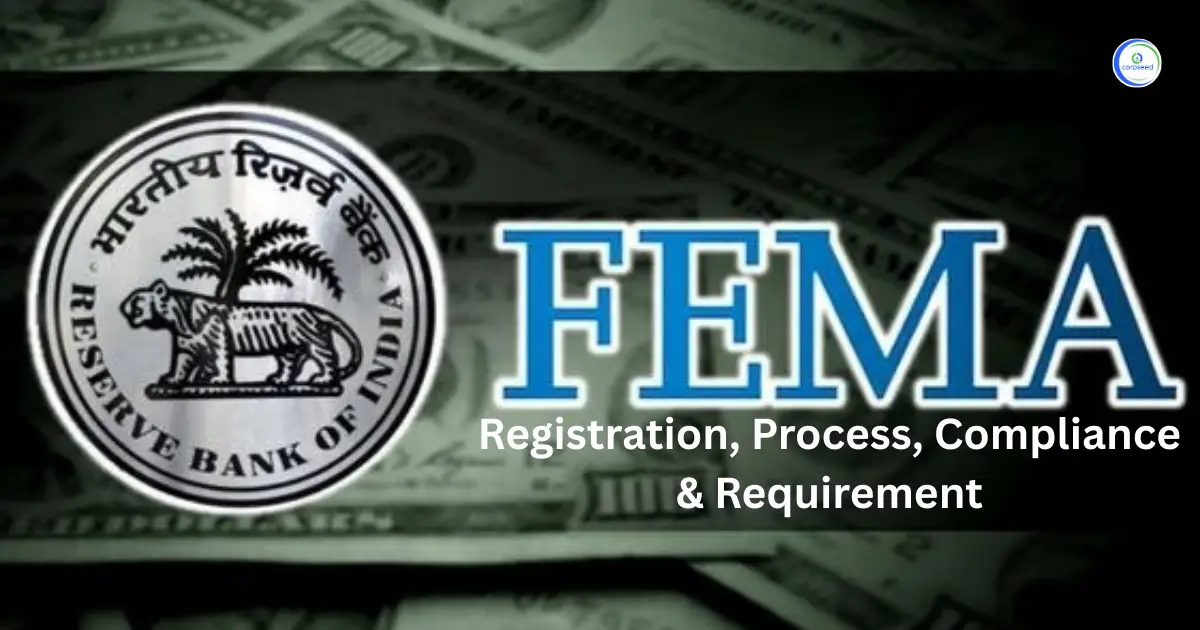Introduction: Foreign Investment in NBFC
Pursuant to Foreign Direct Investment Regulation, Foreign Investment is 100% allowed in Finance Business under automatic route. A country can receive Foreign Investment in Capital Instruments via two routes i.e. Automatic and Government Approval Routes. Changes on the regulatory front is an instrument played by the Regulator to avoid malpractices in the Finance Market.
Table of Contents
Read Our Blog: How To Get Foreign Direct Investment
Recently Government made mandatory Government approval to all Investments from China, though earlier it used to categorize in automatic route. Similarly, other various regulatory changes are ongoing day by day, either to protect the interest of stakeholders or the interest of nations.
Another shocking news has been given by the Reserve Bank of India as their regular operation to manage, monitor and guide the regulated entity, precisely all Non-Banking Finance Companies (NBFC) including Housing Finance Companies (HFCs) and Assets Reconstruction Companies (ARCs).
Chief General Manager of the Department of Non-Banking Financial Company Regulation yesterday issued a notification, for the first time officially to guide the Board of Directors, Stakeholders and Professionals of its regulated entity either to avoid or limit their investment from abroad on specified countries. The notification is precisely designed to combat money laundering and terrorist financing activities. No country across the globe wants to participate on such activities. Hence India being an active partner to stop or detain such money laundering and combating terrorist financing movement, the Reserve Bank of India publishes the notification to adhere to the same by NBFC, HFC and AFCs.
Notification is based purely on the report published by The Financial Action Task Force (FATF), it is a global entity accredited across the globe working on identifying, monitoring and guiding the way to member countries to avoid money laundering and terrorist financing activities from its member country. Therefore officially it announces and list the countries into:-
- High-risk jurisdiction subject to Call for Action
- Jurisdiction under Increased Monitoring
A country that does not fall in the given jurisdiction are termed as FATF-compliant jurisdiction and a country whose name is under the above two list, and investment from such Country is not treated at par with that from the compliant jurisdiction. FATF-compliant jurisdictions are free to make investments on NBFCs, HFCs and ARCs subject to the extant of Foreign Direct Investment Regulation of the Government of India.
Further investors in existing NBFCs, HFCs and ARCs holding their investment prior to classification of source or intermediaries jurisdiction/s as FATF non-compliant, can continue their business and also bring additional investment subject tto regulatory guideline for Foreign Direct Investment Regulation to continue the business in India.
However, if any proposed NBFCs, HFCs and ARCs are receiving investors from or through non-compliant FATF jurisdiction, whether in existing NBFCs or in companies seeking Certificate of Registration (CoR) should not be allowed to directly or indirectly acquire significant influence i.e. 20% or more voting or preferential voting power from such jurisdiction to investee
The notification is applicable with immediate effect.
To recent publication of FATF, the following companies are at
- High-risk jurisdiction subject to Call for Action: This jurisdiction denotes the significant deficiencies in their regimes to counter money laundering, terrorist financing and financing of proliferation. It is often called the “Black List”.
- Jurisdiction under Increased Monitoring: Countries under this jurisdiction are actively working with the FATF to address the strategic deficiencies in their regime to counter money laundering, terrorist financing and proliferation financing.
To name a few countries under the above two jurisdictions are Iran, Democratic People’s Republic of Korea, Syria, Yemen, Pakistan, Myanmar, Sri Lanka, Indonesia, Iceland, Mongolia, Albania, The Bahamas, Cambodia, Mauritius, Uganda, Nepal, Afghanistan, Sudan, Kenya, Turkey, Bangladesh, Thailand, Philippines, Kuwait, Paraguay, Greece, Qatar, Austria, Brazil, Canada, Cyprus and so on. All together the list contains around 91 countries across the globe
So, this is a cautionary article to all those NBFCs, HFCs and ARCs who is planning to raise fund from abroad, beware before proceedings and for all those new applicants who is planning to put an application to the Reserve Bank of India for the fresh license (CoR) for NBFCs, HFCs and ARCs.
This portion of the site is for informational purposes only. The content is not legal advice. The statements and opinions are the expression of author, not corpseed, and have not been evaluated by corpseed for accuracy, completeness, or changes in the law.
BOOK A FREE CONSULTATION
Get help from an experienced legal adviser. Schedule your consultation at a time that works for you and it's absolutely FREE.









